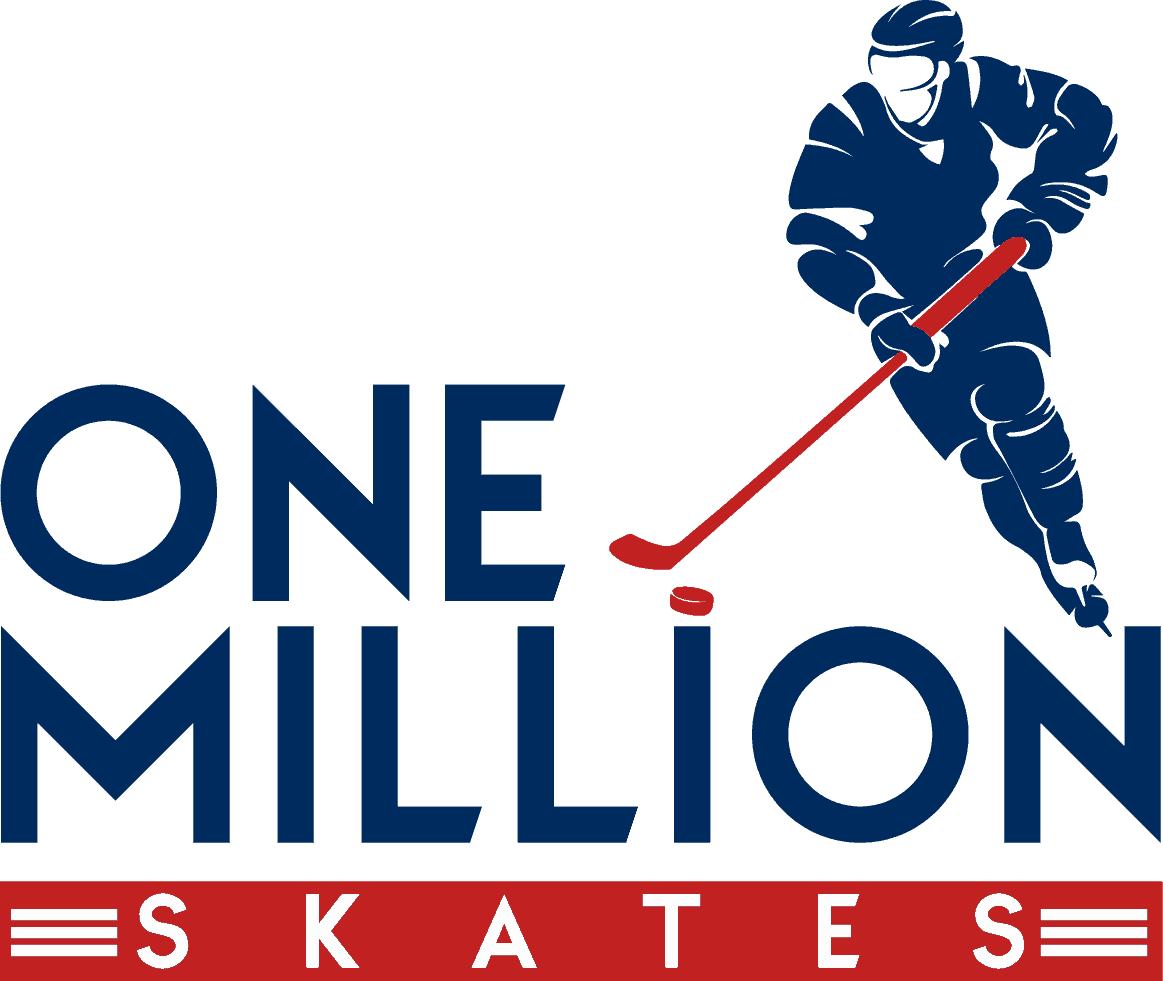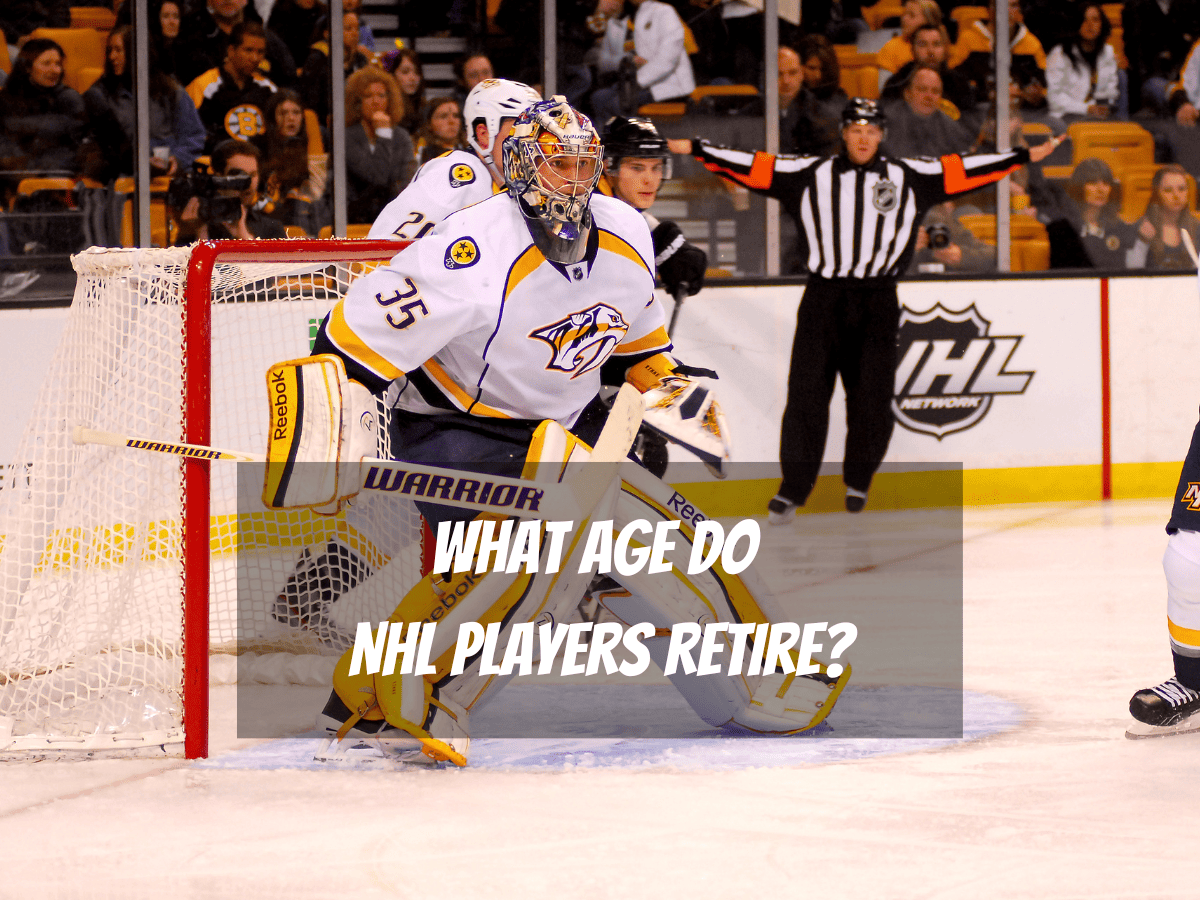We all know that there are simply too many athletes in the world for us to name in one single article.
There are a lot of different sports in the world, with different requirements and skills needed for people to compete and take part.
Because of this, you can expect to see a wide variety of ages involved when people mention the thought of retiring.
For example, golf is one of those sports that requires skill and a vision to place the ball as close as you can to the green.
Because of this, there is less physical strength and endurance needed compared to a physical sport like ice hockey.
In this sport, there are lots of different things that can limit an athlete’s career, such as injuries.
If you think that athletes from different sports all retire around the same age, you’d be wrong.
However, there is a general pattern that starts to appear when you look into this area with more detail and understanding.
So, what age do NHL players retire at? Follow the rest of our guide to find out.
We’ll also look at some injuries that can cut a player’s time on the rink massively.
What Is NHL?
In the simplest terms, NHL is the most well-known level of ice hockey in the world, based in North America.
Formed in 1917 by four Canadian sides, the first American team to make an appearance was the Boston Bruins, who were added to the league in 1924, seven years after the league was first created.
Since then, the sport has grown in both size and popularity for both the players involved and the fans watching from the stands and at home.
Is Hockey A Physical Sport?
As we mentioned earlier, there are lots of varying factors that will mean an athlete has to retire a bit sooner than usual.
For example, recurring injuries and hits to certain areas of the body can impact a player’s endurance and strength, which can, unfortunately, cause them to call time on their careers earlier than they might have anticipated.
A lot of players have experienced concussions of some form at some point in their ice hockey careers due to the frequent impacts that happen with other players and the walls surrounding the ice rink.
In order to win the puck off another player, sometimes you must clatter them into the side of the rink to prevent them from speeding away with the puck.
Hockey pucks are very hard and are, of course, sometimes the cause of some pretty nasty injuries.
Although players are required to wear helmets and protective padding to reduce the risk of injuries significantly, the odds of being injured by the hockey puck aren’t 0.
Because of this, you can expect to see a few cuts and bruises, along with broken bones, at some point.
Because this sport is highly aerobic and requires a lot of energy and stamina levels to compete properly, there is a toll that can be seen being taken on a hockey player’s body, with many of them getting extremely tired before the end of their career.
With all of the pace and speed required, with physicality and strength, it’s no surprise!
When Do Ice Hockey Players Retire?
Of course, for the different levels of the game, there are a lot of different ages involved when it comes to the retirement of ice hockey players.
The more casually you play the sport, the more likely you are to retire at an older age.
When we mean older, we don’t necessarily mean an actual old age, we just mean in contrast to the actual ages of professional ice hockey players.
At the end of the day, many of these athletes will begin their journey by putting on their ice skates at a young age, so they have plenty of time to improve their ability and gain experience by playing the sport for a long time (Find out the Pros And Cons Of Spring Hockey here).
Because of this, it’s no surprise that hockey players retire sooner than you might think. Not all of them are playing into their 40s.
There is no general rule that says that a player must retire at a certain age, it all comes down to how they feel in their own body and whether they think they can keep playing.
With physical and mental factors taking their toll, you can expect different NHL players to retire at different times.
That being said, the average age of retirement for ice hockey players is usually seen between the ages of 28 and 30 years of age.
Of course, as the sport has progressed along with medical technology and procedures, the average age of retirement in ice hockey is slowly creeping upward, allowing players to receive better treatment for their injuries.
Although we mentioned that a lot of players don’t usually make it out of their 30s and beyond, there are a lot of players that have played ice hockey professionally well into their 40s.
We’ll have a look at some of these cases later on in our guide. First, we’ll have a look at when ice hockey players usually start playing.
What Age Do Ice Hockey Players Start Their Career?
Moving to the opposite end of the spectrum, we’ll have a look at the beginning of NHL players’ careers, so we can have a better understanding of how long they play in general.
This can give us a better idea of why they might call an end to their careers and hang up the skates, with many people expecting them to keep playing from an outside perspective.
Once again, there is no requirement that states ice hockey players need to start at a certain time, however, a lot of people who wish to become professionals in the sport will need to start practicing and training from a young age to build the experience and abilities required to compete at a high level of ice hockey.
The majority of NHL players who make a good name for themselves throughout their professional careers will begin playing the sport at around 6 or 7 years of age.
They need to be old enough to learn how to skate on the ice, but young enough that they have more than enough time on their side to ensure they have sufficient time to learn and practice.
What Ages Do Ice Hockey Players Peak?

We all know that it is clearly a massive achievement and statement to be playing as an older player in this sport.
With the younger ice hockey players relying a lot on their stamina and freshness, as well as their ability, it really is a testament to the older players in the league when they’re still competing to stay in the NHL.
However, the ability of these players is bound to deteriorate over the years and we expect clubs to try and avoid signing older players when possible because they might not be playing at the same standard as they used to.
Of course, there are special cases where players have shown their ability really is timeless. Their form is temporary, whereas their class is permanent.
The general area of age that you can expect an NHL player to peak is around the age of 28.
Of course, different positions will tend to peak at different times because of the varying different qualities that are needed to succeed in that area of the team.
Forwards tend to peak at 27.7 years of age on average, whilst defensemen will peak at 28.8 years of age on average.
A player’s peak doesn’t necessarily mean that they will drop off straight away, with some players reaching their peak and staying at that level for years afterward.
We’ll have a look at some of the players who have proven to the world that sometimes, age is just a number and that true class sticks around for years and years.
Some Of The Best Players To Play In Their 40s
As we’ve established, the majority of players will retire in their late 20s and early 30s, depending on how their bodies are feeling and whether they still have the mentality to compete at the highest level in ice hockey.
Here are some of the best players to continue playing longer than many might’ve thought was physically possible.
David Ayres
This is easily one of, if not, the biggest household names when it comes to ice hockey players still competing over the age of 39.
This infamous player featured once in the NHL at the age of 42 due to an unfortunate run of injuries to his fellow goalies for Carolina.
Ayres stepped in as a Zamboni driver and came away as a cult hero.
They made 8 saves from 10 shots and helped his side to take away all of the points as they snatched victory!
Roberto Luongo
Another famous goalie that featured in his 40s, Luongo really is defined as a generational talent, standing out from a lot of other players.
However, he unfortunately never won a Venezia.
Although, he did make five All-Star games, which gave him a perfect chance to prove how good he really is.
The goalie played one game since turning 40 and retired a legend of the game.
Martin Brodeur
If we’re looking for a player that was still ever-present at the start of their 40s, it’s Martin Brodeur.
The franchise legend spent 21 seasons with the Devils, playing 75 games in his 40s.
Following his exit from his beloved side, he joined the Blues at 42 years of age, however, many people prefer to forget these 7 games.
They certainly don’t compare to the majority of his career.
Dominik Hasek
Playing a huge part for the Sabres, the player nicknamed “The Dominator” won 5 Venezias throughout his prestigious career.
On top of this, he won the Hart Trophy as MVP twice, which is no mean feat.
Playing in 3 different seasons as a player in his 40s, Hasek featured for both Detroit and Ottawa at the back end of his career.
He ended on a high, winning the Cup in his final season.
Al MacInnis
A great skater in his time, Al MacInnis only actually featured in 3 games during his 40s.
With a mean slap shot and a desire to keep going, this man is featured in the Hall Of Fame, which is a perfect testament to his career as a whole.
Brett Hull
When Hull returned to the NHL, it wasn’t all peachy for the aging skater.
When you compare him to Belfor, who returned and played brilliantly, this is certainly disappointing for those Coyotes fans out there.
Hull made his comeback, but it was short-lived.
He only made 5 appearances for the Coyotes before he realized that sometimes, it’s best to be remembered how you used to be.
Conclusion
That’s the end of our guide. We’ve realized that it’s time to hang up the skates on our article.
Although the majority of players do seem to retire around the age of 29 or 30, there are a lot of those who have looked to defy the odds and make a name for themselves as someone who refused to give up.
At the end of the day, the grass doesn’t always stay green and many of these older examples might have wished that they retired when the world thought they should have.

